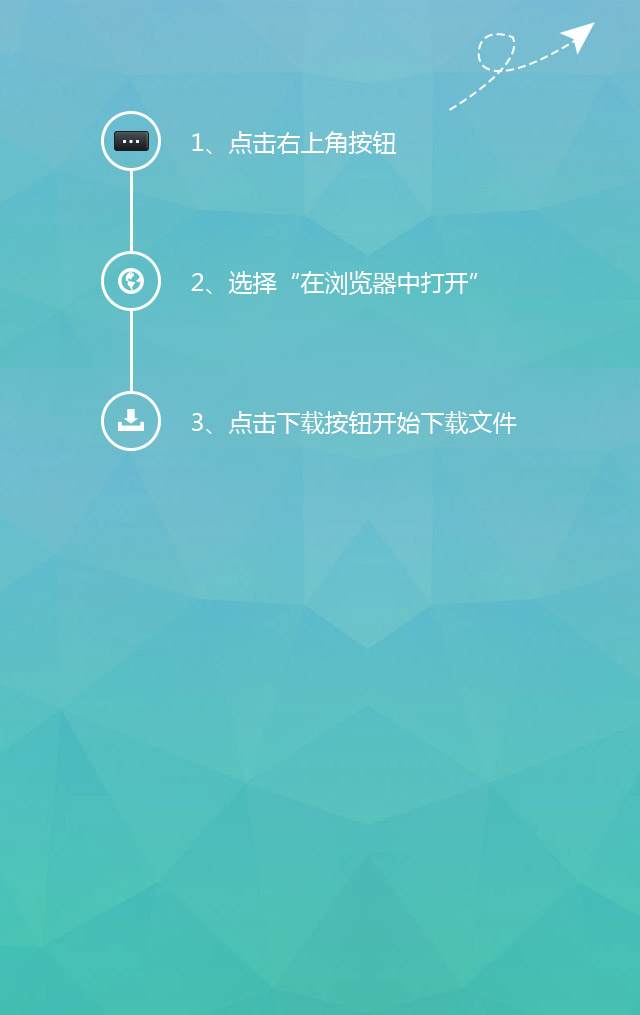第13课:一个真正的斯图尔特家的后代《走遍美国》
第13课:一个真正的斯图尔特家的后代《走遍美国》
ACT 1-1 “他的眼睛和 Richard的像极了。”
【故事梗概】
Ellen 和Susan 正在Marilyn的房间里,她们在为迎接Richard和Marilyn的新生婴儿Max回家而作准备。两人看着Max的照片,在评论他长得更像谁。
Ellen: There's nothing more joyous than the arrival of a new baby.
Susan: I am so excited, Mother! Just imagine -- Marilyn and Richard must be thrilled! Oh, a new baby!
Ellen: Max…Max… Max. Oh, it's a sweet-sounding name for a sweet little boy. My first grandchild.
Susan: And my first nephew. Isn't he just adorable? He looks a lot like you, Mom. He does.
Ellen: Do you think so? Well, I guess. He does look a lot like Richard, and I guess he looks a lot like me. Oh, he's got Richard's eyes, though.
Susan: I really want Harry and Michelle to see Max.
Ellen: When are they coming?
Susan: Tomorrow. Harry has an account to work on today. Yes, he does have Richard's eyes. Big blue eyes. The baby even looks at you like Richard does.
Ellen: Well, children usually resemble their parents.
Susan: It's true. Michelle is a lot like Harry in so many ways. And she's shy with new people, just like he is.
Ellen: You really like Michelle, don't you?
Susan: Yes, I'm very fond of her.
Ellen: And Harry, too?
Susan: Well…
【语言点精讲】
1. There's nothing more joyous than the arrival of a new baby.
再没有比新出生的婴儿回家来更叫人高兴的了。
there is nothing more…than sth.: 没有比某事更让人……的了。这个结构虽然表面上看是比较级的形式,但是实际上表达的是最高级的含义。
2. Isn't he just adorable?
他不是简直可爱极了吗?
这里的just起强调作用,意思等于simply。
adorable: 可爱的。
3. Well, I guess.
嗯,我想是的。等于I guess so 或 I guess you are right。
4. He's got Richard's eyes, though.
他的眼睛和 Richard的像极了。
表达某人与某人相像时, 除了用look like, resemble, alike 等词外, 还可以说 sb. has got sb.'s features, 具体说明哪个部位相像。
though这里是副词,放在句中或句尾,用逗号隔开,起补充说明的作用,意思是“然而,可是,不过”,表明前面加上去的话虽似乎与更前面的话相反,但仍是对的。在这里是说明“他虽像我,然而眼睛却不像我,而像Richard”。
5. When are they coming?
他们什么时候来?
come, go等动词常用进行时态表示将来时, 例如:The rain is coming. 雨要来了。
6. The baby even looks at you like Richard does.
这孩子连看人的时候的神气都像Richard。
like Richard does: 像 Richard 那样(看)。这是非正式用法,相当于 as Richard does。like也有“像……一样”的意思,但后面一般接名词或代词,而不接句子。
7. Michelle is a lot like Harry in so many ways.
Michelle在很多方面都像Harry。在这里 a lot起状语作用,相当于very much。
in so many ways: 在很多方面。
8. I'm very fond of her.
我很喜欢她。
be fond of : 喜爱,喜欢,喜好。感情上,be fond of不如love强烈。
9. Well…
嗯……。说话时, 如果一时回答不上来, 或犹豫不决, 可用Well…拖延时间。
ACT 1-2 “又一代人来把Stewart家的姓传下去。”
【故事梗概】
Grandpa走进了房间,他已经为Max挂起了欢迎的标语。他也为自己的第一个曾孙即将回家来而兴奋不已。
Ellen: Uh, it's four-thirty. Oh my! Marilyn and Richard will be home from the hospital any minute, and we must prepare this room.
Susan: Where will we put all the presents?
Ellen: Well, let's take everything to the living room. Marilyn and Richard and the baby need the space. It's crowded in here.
Grandpa: The welcome sign is up: “Welcome home, Max.”
Ellen: Isn't it exciting, Grandpa?
Susan: Your first great-grandchild.
Grandpa: Yes. Yes, sir. A great-grandchild. A great-grandson. Another generation to carry on the Stewart name.
Susan: I love you, Grandpa. You make me feel so proud to be part of our family.
Grandpa: And one day, you'll have your own family, and I'll be proud to be part of it.
Ellen: Now you understand my feelings, Susan. I'm Grandpa's daughter-in-law, but I feel like a Stewart. He's always made me feel like his own daughter.
Grandpa: Well, that's because you're so much like us, wonderful!
【语言点精讲】
1. Oh my! Marilyn and Richard will be home from the hospital any minute, and we must prepare this room.
天哪!Marilyn和Richard随时都可能从医院回来了,咱们得把这间屋子准备好。
Oh my!: 啊, 天哪!表示惊讶的感叹句。Oh my!源于 Oh my God!因宗教上禁忌随意说上帝之名,故简略一字。
any minute: 随时,在这里等于at any minute。
2. It's crowded in here.
这里太拥挤了。
在here前面加了in,是强调“在这里”。
3. The Welcome sign is up.
欢迎的标语已经挂起来了。
4. Yes. Yes, sir.
是的,一点不错。这里Grandpa用的sir只是男人在回答的时候的一种说法,并不是用sir在指代Susan。
5. Another generation to carry on the Stewart name.
又一代人来把Stewart家的姓传下去。
generation: 这里指“一代人”。
to carry on the Stewart name: 继承Stewart 家的姓;传宗接代。
6. You make me feel so proud to be part of our family.
你使我因为自己是这家里的人而感到自豪。
feel so proud to be: 为……而感到自豪。也可以说 feel/ be proud of doing sth.
ACT 1-3 “没有中间名字。”
【故事梗概】
Susan找到了礼物的包装纸。她走进了起居室。 Ellen和Grandpa 在包礼物的时候,Susan开始在她给Marilyn和Richard买的婴儿纪念册上填写一些信息。
Susan: Mom, got it. This will make a nice gift for Marilyn and Richard. They can keep a record of all of the important dates and information about Max's life here. Let's see. Name: Max Stewart. Does he have a middle name?
Ellen: No, just Max. I like that. No middle name. No middle initial.
Grandpa: Like me. I'm Malcolm Stewart. Just Malcolm Stewart.
Susan: And Max has your initials, Grandpa: M.S.
Ellen: Uh, it must mean something.
Susan: Weight: eight pounds six ounces.
Grandpa: Eight-six. Big boy! All the Stewart men were big.
Ellen: Well, Robbie was eight pounds two ounces, and Richard was eight pounds three.
Susan: And me?
Ellen: Eight pounds six. You were big, just like Max.
Susan: Eight pounds six, just like me. That's nice. Length. Length?
Ellen: Richard says Max is twenty-one inches long.
Susan: Twenty-one inches. Is that tall or average or what?
Grandpa: Tall.
【语言点精讲】
1. Mom, got it.
got it: 找到了。got it是I've got it的省略,这是口语中省略主语的用法。
2. This will make a nice gift for Marilyn and Richard.
This will make a nice gift: 这是一件好礼物。句中的make不是“制作”的意思,而是“成为、构成”的意思,属于非正式用法。
3. They can keep a record of all of the important dates and information about Max's life here.
他们可以在这里面记下Max生活中一切重要的日期和事情。
keep a record of: 为……作记录。
4. No middle name. No middle initial.
没有中间名字,也没有中间名字的第一个字母。
middle name: 中间名字。美国人一般有 first name, middle name和 last name。有的没有middle name。first name也称given name, 是名。last name也称 family name或 surname, 是姓氏。middle name有时是母亲的姓氏,有时是为了纪念某位亲人而取的。
initial: 名字的第一个字母。后面Susan说的“And Max has your initials, Grandpa: M.S. ”中的initials 是指姓和名的第一个字母的组合, 如Malcolm Stewart 的initials就是M.S.
5. Weight: eight pounds six ounces. --Eight-six. Big boy!
weight: 重量。
eight pounds and six ounces: 8磅 6盎司, 约 4公斤。美国人通常用英制计量单位。虽然美国政府曾经积极推广采用公制单位, 但人们还是习惯用英制单位。科技和医药用公制单位。
Eight-six. : 等同于 Eight pounds six ounces(8磅 6盎司)。讲重量时, 常常省略单位名称。
6. Length.
length: 身高, 身长。length 是形容词long的名词形式。在谈婴儿时, 身长用length, 但在谈及年龄稍大的人或成年人时, 身高需用height。
7. Richard says Max is twenty-one inches long.
twenty-one inches long: 21英寸(约53厘米)长。
表示长度或宽度时, 用be+ 数字+ 长度单位+形容词 long或 wide。例如:The table is five inches long and four inches wide。
ACT 1-4 “一个真正的 Stewart家的后代。”
【故事梗概】
Grandpa听到了汽车的声音。Max终于被接回家了。他的到来使全家人都非常高兴。
Grandpa: All the Stewart men are tall.
Ellen: Well, Grandpa, you're about five-nine or five-ten. I wouldn't call that tall.
Grandpa: I take after my mother's family. They were…they were…they were average.
Susan: Mother, Marilyn. Father, Richard. And lots of pages for Richard's photos of Max.
Grandpa: Speaking of mother and of father-and speaking of Max-I hear the car. They're here!
Ellen: Oh! Oh, quickly! Go, go, go!
[Ellen, Susan, and Grandpa rush to open the door. Marilyn, Richard, Philip, and Robbie enter the house. Marilyn is carrying Max. ]
Ellen: Let's see. Oh, welcome home. Oh, let her in. Wait with your pictures for a second. Come on, darlings. Sweetheart…Sit down right here.
Susan: Oh, he's so cute! Oh, Marilyn!
Robbie: Max looks just like Grandpa.
Grandpa: A real Stewart.
Marilyn: I'm so happy to be home with my family - and with Max.
【语言点精讲】
1. Well, Grandpa, you're about five-nine or five-ten. I wouldn't call that tall.
哦,爷爷,你大约身高5英尺9英寸或是5英尺10英寸。我不认为这叫个子高。
Grandpa 因为有了接辈人乐得几乎忘形。他夸口说All the Stewart men are tall. (斯图尔特家男人个子都高)时,Ellen委婉的纠正了他。
five-nine: 指的是five feet nine inches,5英尺9英寸。1英尺为12英寸,等于30.48厘米。
I wouldn't call that tall.: 我不认为这个身高很高。I wouldn’t call that是一种委婉的矫正别人的话的说法。
2. I take after my mother's family. They were…they were…they were average.
我像我母亲家的人,他们……他们……他们身材都是中等。
take after: 指像某个直系亲属,否则不能用这个短语,因为它的意思是“因遗传或血缘的关系而像”。例如,He takes after his grandfather. 他像他爷爷。
average: 平均, 一般。这里 average 指“中等身材”。
3. Speaking of mother and of father - and speaking of Max - I hear the car.
说起孩子的父亲和母亲——说起Max——我听见汽车来了
speak of:谈到, 说起。在这里等于speak about。
4. Let her in.
让她进来。相当于“Let her enter or come in. ” 反义词是“ Let her out.”
5. Wait with your pictures for a second.
先别忙着拍你的照片。
6. A real Stewart.
一个真正的 Stewart家的后代。Stewart一家人常用这个短语,指某一成员确实具备Stewart家族的优良品质。
ACT 2-1 “这是我们的家训。”
【故事梗概】
晚上,Susan要回自己的住所去了。Philip要开车送她去地铁站。同时,在楼上,Marilyn 和Richard在谈论大家送给Max的礼物。
Susan: It's almost ten o'clock. I've got to go. Tomorrow is Monday, and work begins at eight in the morning for me. Oh, I'm so happy that Max is home. He's the sweetest little thing.
Ellen: I'll drive you to the station, dear. You can catch the ten-twenty train to Grand Central Station.
Philip: I'll drive Susan, dear.
Ellen: Thank you, Philip. Then Grandpa, Robbie, and I can finish wrapping all these gifts.
[Upstairs in Marilyn and Richard's room. Marilyn and Richard are watching Max sleep. ]
Richard: It's so good to have you home again…and to see Max asleep in his bassinet at home with us.
Marilyn: To be with our family and all that Stewart TLC.
Richard: TLC -- tender loving care. That's our motto.
Marilyn: Did you see the washcloth and the towels with the teddy bears on them? Alexandra and the Molinas sent them for Max.
Richard: It was so kind of them. Now Max has come into every one's life.
Marilyn: The house is so alive with him here. The welcome sign over the door. The boxes of presents. The M-A-X over his bassinet. Robbie put that there. Susan's teddy bear. So cuddly. The beautiful crib from Mom and Dad.
【语言点精讲】
1. It's almost ten o'clock. I've got to go.
差不多10点钟了,我得走了。
在英美国家,当客人或来访者要走时,一般提一下当时的时间,再说该走了。这时主人不宜强行婉留,客人也不要说“打扰了,耽误你的时间了”之类的话。致谢、道别即可。
It's almost ten o'clock.: 快十点了。 almost常用于表示时间迟、长度或重量大等意思,有“虽不至、亦不远矣”的含义,与nearly同义。如果不强调这一点时,常用 about,a little less than,a few minutes to等中性的表达方法。句中的It表示时间。
2. Tomorrow is Monday, and work begins at eight in the morning for me.
work begins at eight in the morning for me:早8点我就得开始工作。这里用一般现在时表示将来计划好的、肯定要发生的事情。
3. You can catch the ten-twenty train to Grand Central Station.
你可以赶上10点20分开往大中央车站的那趟列车。
catch: 在这里的意思是赶上(车、船等)。
ten-twenty train: 10点20分的那趟车。
Grand Central Station: 大中央车站(在纽约曼哈顿)。
4. Then Grandpa, Robbie, and I can finish wrapping all these gifts.
finish wrapping all these gifts: 把这些礼物包装完。finish这个动词后只能接名词或动名词( 即-ing形式), 不能接不定式。
5. TLC -- tender loving care. That's our motto
TLC——温柔,慈爱,关心。这是我们的家训。
motto: 格言, 座右铭。
6. Did you see the washcloth and the towels with the teddy bears on them?
你看见了上面印着泰迪熊的洗脸手巾和浴巾了吗?
washcloth: 洗脸手巾,面巾。
towels: 浴巾,毛巾。
teddy bears: 泰迪熊。Teddy bear是一种直立的小玩具熊。它的命名, 来自美国老罗斯福总统Theodore Roosevelt(昵称为Ted或Teddy)。罗斯福总统酷爱猎熊。有一天和一群朋友到林中打猎, 突然看到一只小熊,直挺挺的站在他面前, 模样可爱极了。罗斯福一时起了恻隐之心,缓缓放下手中猎枪,放走这只小熊,这事经过报纸报导,立刻传遍全国,美国的爱护动物者趁机大事褒扬罗斯福总统的一念之善。这时一位面包店的老板一时兴起,便根据那只可爱小熊的造型, 制成一批玩具,命名为Teddy bear, 不料深受小朋友喜爱,立刻销售一空,终于使那位面包店老板改行,大量制造Teddy bear出售,造成全国风行, 至今不衰。
7. It was so kind of them.
他们真好心。
It+be+形容词+sb.(+to do sth.)的句型,常用于表示对某人(做某事)所表现的性格或品质的描述;其中常用的形容词有good,nice,kind,brave,careless,clever,foolish,generous,right,wrong,rude,unkind,selfish,cruel,thoughtful,annoying等。句中的It是形式主语,代表上文中所讲的某件事或后面动词不定式所表达的那件事。
ACT 2-2 “它总是给他带来好运气。”
【故事梗概】
Richard看到了Grandpa挂在墙上的棒球手套。他给Marilyn 讲了Grandpa坚信这只手套能给Steward家的孩子带来好运的“迷信”。这时,Max开始哭了。
Richard: Oh, and Grandpa's baseball glove. You know, it hung over my crib, too. And it hung over Robbie's crib.
Marilyn: Part of Grandpa's magic?
Richard: Oh, that's not all. It hung over Susan's crib.
Marilyn: The same baseball glove?
Richard: That's right. Grandpa hangs it there for good luck. He says it always brought him good luck on the baseball team. He believes it'll bring good luck to all the Stewart babies.
Marilyn: And then he takes it back when Max is ready to use it?
Richard: Yes, and replaces in with a new glove so the old one will be ready for a new member of the Stewart family.
Marilyn: Grandpa really loves his family, doesn't he? So do I.
Richard: And so do I.
[The baby begins to cry. ]
Richard: And so does Max.
Marilyn: After he eats!
【语言点精讲】
1. Oh, and Grandpa's baseball glove. You know, it hung over my crib, too.
噢,还有爷爷的棒球手套。你知道,它也在我的婴儿床上方挂过。
baseball glove: 棒球手套。
hang over: 挂在……上。
2. He says it always brought him good luck on the baseball team. He believes it'll bring good luck to all the Stewart babies.
他说在棒球队打球时,它总是给他带来好运气。他相信这手套也能把好运气带给所有的Stewart家的婴儿。
bring sb. good luck/bring good luck to sb.: 给某人带来好运气。把好运气带给某人。
3. And then he takes it back when Max is ready to use it?
然后等到Max大了能用它了,爷爷就把手套收回吗?
takes it back: 把它收回去。take back是“收回, 拿回, 取消”的意思。
4. Yes, and replaces in with a new glove so the old one will be ready for a new member of the Stewart family.
是的,他就用一只新手套给换回去,好让旧的那只能准备好在Stewart家再添丁时使用。
replace in with sth.: 用某物替换。
be ready for…: 为……做准备,为……做好准备。
5. So do I.
我也如此。
这里的So用来表示与前面说的内容相同的事情或状态, 以避免重复使用动词。一般要加上助动词或情态动词。
ACT 3-1 “你想得真周到。”
【故事梗概】
Harry和Michelle 来Stewart家看望Max。Marilyn很喜欢Michelle为Max选的婴儿服。
Marilyn: Thanks, Michelle.
Michelle: I hope you like it.
Marilyn: Isn't this baby outfit adorable? With his name on it--“Max. ”Thanks so much, Harry and Michelle.
Richard: We really appreciate it.
Harry: I'm glad you like it. Michelle picked it out.
Michelle: Yes. I told Daddy to pick blue ones. Blue is for boys, and pink is for girls.
Grandpa: And Max is some boy.
Richard: He's a real Stewart.
Grandpa: Right!
Ellen: That was so thoughtful of you, Michelle. Especially to pick it out in blue.
Susan: Would you like to see baby Max, Michelle?
Harry: Could she? Could we?
Michelle: Could I?
Marilyn: Take them upstairs, Susan. Harry and Michelle can watch Max sleeping.
Susan: Let's go.
Harry: Come on, Michelle. Before Max wakes up.
Marilyn: Will you please take this upstairs, Susan?
Susan: Uh-huh.
Marilyn: Thank you.
【语言点精讲】
1. I hope you like it.
希望你喜欢。送别人礼物时,英文一般说“I hope you like it.” 如果对方表示喜欢,我们可以说“I'm glad you like it.”
2. Isn't this baby outfit adorable? With his name on it--“Max. ”Thanks so much.
这套婴儿装可真叫人喜欢,不是吗?上面还有他的名字Max。非常感谢你们。
接受别人的礼物时, 一般要表示喜欢并致谢。
baby outfit: 婴儿装。
3. We really appreciate it.
我们真的很感谢。致谢的常用表达。
4. Blue is for boys, and pink is for girls.
在美国,给新生的婴儿送礼物时,特别是礼物为婴儿用品时,如果知道婴儿是男孩,习惯上会选蓝色的物品,婴儿是女孩则选粉色。不知道婴儿的性别是通常会选黄色。
5. And Max is some boy.
Max可是个不寻常的男孩子。some指了不起的,出色的。从这句很自豪的话可以看出Grandpa对这个曾孙的喜爱。
6. That was so thoughtful of you.
你想得真周到。
It /That + be+形容词+ of + sb.: 表示某人具有何种品质, 经常用在这个结构中的形容词有kind, thoughtful, helpful, clever等。
7. Would you like to see baby Max?
你想看看小Max吗?
Would you like to…? : 你想……吗?表示一种建议或邀请,与“Do you like to…?” 不同,后者询问对方的爱好。
8. Harry and Michelle can watch Max sleeping.
watch Max sleeping: 看Max睡觉。watch除了接不带to的动词不定式之外, 也可接现在分词表示观看的动作正在进行。
ACT 3-2 “在这儿谁能插进一句嘴?”
【故事梗概】
趁Susan, Harry和Michelle 上楼去看Max 的空,Stewart一家人评论了一下Susan和Harry的关系。
[Susan, Harry, and Michelle go upstairs. ]
Philip: Michelle is very grown up for a ten-year old, huh?
Ellen: She's smart and sensitive for her age.
Grandpa: Growing up without a mother is difficult. You mature quickly.
Ellen: Susan's like a mother to Michelle. They have a good relationship. Do you think Susan and Harry will get married?
Robbie: Yeah. You can count on it.
Philip: I think so. Yes. They get along so well.
Grandpa: I like him. He's good for Susan.
Ellen: He's a little quiet.
Richard: It's hard to do anything but listen in this family.
Ellen: How can anybody get a word in around here?
Marilyn: You're right, Ellen.
Philip: Oh, really?
Richard: It's the way it should be. The Stewarts are the Stewarts!
Grandpa: They always were, and they always will be.
Richard: Right!
Grandpa: They've always got an opinion. Always got something to say.
Marilyn: And now there's Max Stewart, and if he talks as loudly as he cries, we're all in for trouble.
Robbie: He's quiet now.
Marilyn: Mmm-hmm. That's because he's sleeping.
【语言点精讲】
1. Michelle is very grown up for a ten-year old, huh?
米歇尔作为一个十岁的小姑娘显得很成熟,是吧?
grown up 本意是“长大,长成人”, 这里指Michelle虽然小但很成熟。
for: 在这里是表示“相对于……来说,如此……是不一般的”。下面Philip说的“She's smart and sensitive for her age.”中的for也是这个用法。除谈到年纪以外,还可以有别的所指,例如You are heavy for your height. (相对于你的身高来说你有点重。)It's unusually warm for November. (对于11月来说这么热很不寻常。)
a ten-year-old: 这里指的是“一个10岁的孩子”。
2. You can count on it.
你尽管相信好了。相当于You can be sure about that.
count on: 指望,依赖,相信。
3. They get along so well.
他们相处得很好。同义的表达有:They have a good relationship.
get along so well: 相处得很好。也可在这个短语后加with sb. , 表示“与……相处得好”。
4. It's hard to do anything but listen in this family.
在我们家里,外人除了听,还能怎么样。
anything but: 根本不;绝对不;除…以外任何事;一点也不。but后面带没有to的不定式
5. How can anybody get a word in around here?
在这儿谁能插进一句嘴?
get a word in: 插话,插嘴。
6. It's the way it should be.
事情本该如此。
7. They always were, and they always will be.
他们过去一直是这样,他们将来也一直会是这样。
8. And now there's Max Stewart, and if he talks as loudly as he cries, we're all in for trouble.
现在又添了Max Stewart,要是他说话的声音像他哭声一样大,我们大家伙就要有麻烦了。
as loudly as: 像……一样响。as…as结构,用于表示同级之间的比较。
be in for trouble: 会有麻烦, 会吃不消。be in for 常表示无可避免地将要遭到某种不愉快或意外的事。如口语中常用的“be in for it”指的是要遭到麻烦或惩罪,这里的it泛指某种倒霉的事。
ACT 3-3 “没有必要小声说话。”
【故事梗概】
在Marilyn和Richard的房间里。Susan, Harry和Michelle 在看Max 睡觉的样子。这时Max突然哭起来了,这让Susan不知该如何才好。
Harry: He's really cute.
Susan: It's not necessary to whisper, Harry. A baby gets used to voices.
Harry: I remember now. We always whispered when Michelle was born.
Michelle: And I didn't sleep well. Daddy told me. I never slept. And when I did, I woke up when I heard someone speak.
Susan: I bet you were cute.
Harry: She sure was.
Michelle: Not as cute as Max. He's like a little doll.
Michelle: Oh, good. Now I can help diaper him.
Susan: Let's get Marilyn. What do you do when he cries like that?
Harry: You pick him up.
Susan: He's so little…so new. Let's call Marilyn.
Marilyn: Time for a feeding and time for a diapering. You're a real Stewart.
【语言点精讲】
1. It's not necessary to whisper, Harry. A baby gets used to voices.
没有必要小声说话,Harry。婴儿会习惯于听见人声的。
be necessary to do sth.: 有必要做某事。
gets used to: 习惯于。get used to后接名词或动名词。get表示逐渐变化而达到某一状况的过程,也可以用be来替换。
2. And when I did, I woke up when I heard someone speak.
即使睡着的话,一听见人说话我就醒来了。
did: 睡了。此处的did代替动词slept。助动词经常可以代替动词,使话语更简炼。当助动词代替动词时要重读。
3. She sure was.
她确实是(很逗人喜欢)。这是非正式用法,正式用法是: She certainly was.
4. Not as cute as Max.
不如Max这么逗人喜爱。
not as…as…: 不如……。这个结构中的第一个as可以用so替换。
5.Time for a feeding and time for a diapering.
该喂奶了,也该换尿布了。
time for sth.: 是该做某事的时候了。time for是 It's time for的省略。英文里表达“该做什么事”的时候, 除It's time to do sth. 以外, 也可以说It's time for doing sth. 或It's time for sth.
推荐
-

-

QQ空间
-

新浪微博
-

人人网
-

豆瓣

